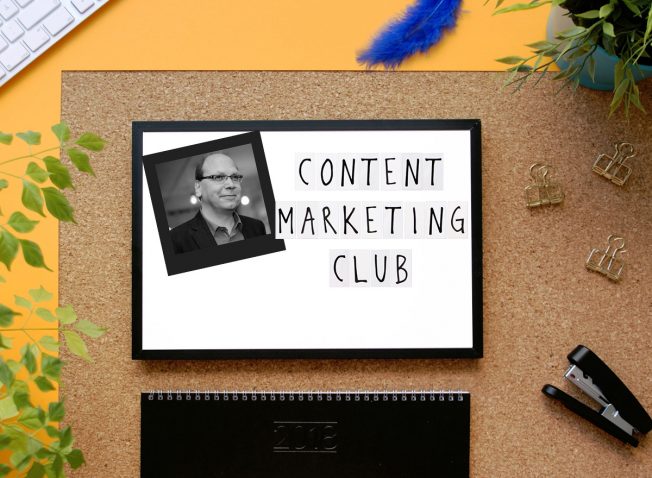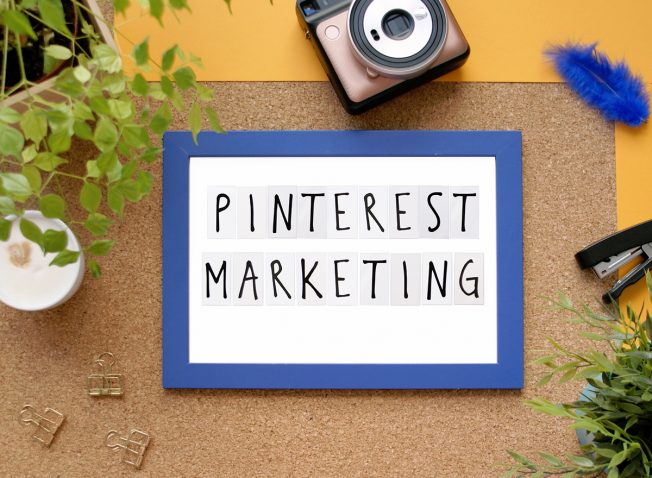Content Marketing Club - Klaus Eck and Philipp Schütte in conversation: "Content creation can be automated."


Telling stories is his passion: In a classic landline phone call, our Content Manager Philipp Schütte spoke with agency boss Klaus Eck. In a relaxed computer room atmosphere, the two talked about AI in content marketing and what is already being implemented today. A conversation that we naturally don't want to withhold from you.
{{divider}}
Artificial intelligence or rather machine learning?
Philipp: Hello Klaus, nice of you to take time for us.
Klaus: Thank you for the invitation to the interview.
Philipp: Everyone is always talking about AI instead of integrating AI. Do you have a similar view? And if so, why is that?
Klaus: I don't think we're talking about AI or AI at the moment, but about machine learning. Rule-based software that is used primarily in the area of content automation and content distribution.
So far, however, these approaches have not been implemented in a business context but primarily in journalism. Among others, in the areas of finance and weather, where exclusively rule-based content is played out.
In a business context, artificial intelligence in content marketing is only used by large companies such as IBM. However, only in the area of quality assurance, where the company Acrolinx provides suitable software. This can then be used to check 50,000 texts at once, which are then assigned corresponding numbers based on their quality. This then results in a priority list that shows whether content needs to be revised again.
However, the revision is still done by flesh-and-blood authors. So we're not talking about automated production when we talk about AI in content marketing. Rather, we are talking about the optimization of existing texts.
{{divider}}
Where artificial intelligence can already support us in content marketing...
Philipp: That's an interesting point you raise. It almost anticipates the question that follows a bit. It's: Should content marketers fear artificial intelligence or, on the contrary, see it as a new opportunity?
Klaus: An AI is a supporting system that enables us to produce better content. The areas of application are extremely diverse. For example, AI could not only help the content manager to distribute content in a more targeted way. It could also help to make content more personal.
If we look at today's users, they want to be addressed in a personalized way. This means that not just one text is published for one persona, but a total of 10, 20 or more texts for just as many personas. In this area, it makes sense to rely on an AI. However, the majority of companies and service providers do not rely on such a solution.
Philipp: I can jump right in on that. How do you use AI at d.tales? So do you already have approaches of this kind, or is it still in its infancy?
Klaus: This is definitely still in its infancy for us. There are already services that are freely accessible to every content manager and that I use in my daily work. These include curation tools like Buzzsumo, which can be used, for example, to find out which topic is currently trending.
In other words, there is already more than enough software that is already being used today and is also considered AI in a broader sense.
As you can see, many tools can be used in the cross-media area to play out the right content at the right time. In its current form, AI only offers assistance.
Philipp: Could you give more examples of such tool approaches?
Klaus: It already starts when we write a text in Microsoft Word and it is automatically corrected. In the area of image editing, you can also customize images faster and with higher quality using the right Adobe tools. If you can afford it, you can already produce content at a high level. In Germany, however, only the really big companies will rely on this. Medium-sized businesses are more likely to stay away.
{{divider}}
... and where not yet
Philipp: I've always wondered whether texts will only be written by data-fed computers in the future. Is that at all realistic in the foreseeable future?
Klaus: Some experts believe that it will take at least five to ten years before this is possible. I personally believe that content creation can be automated very quickly.
However, most companies simply have far too little know-how, which cannot be solved by a wish engine or an optimization tool. Just because I can create and distribute my content better via such tools, I still need capable content and marketing managers to develop a content strategy.
Handing over content marketing completely to the machine doesn't work. The only thing I can do is let the machine support me.
Philipp: That's an exciting prediction you're making. Also because I recently read an article about what will come after digitization. The author came to the conclusion that professions that require human components such as empathy will be in high demand. After all, content marketing thrives on emotions and humanity. That's why I find it hard to imagine that these tasks will be outsourced to a machine in the future...
Klaus: Whereby one must not disregard the fact that machines have evolved a lot. Of course, they will never develop a consciousness, but they will come very close to us.
We are already feeling the effects of this on Facebook. There, we only receive content that is based on our interests. If a machine can recognize which content we prefer based on our behavior and we can produce this content based on this, it will be exciting.
Since Facebook also orients itself to our click behavior, this has rightly brought critics onto the scene. Simply because Facebook turns us into creatures who only ever get the content that works well.
Philipp: Which is risky in the sense that we live in our own bubble...
Klaus: Yes, although the problem is not necessarily that we live in our own bubble, but that we are confronted with other bubbles.
When I move in my own bubble, I want to be confirmed in my interests. Also because I perceive the other content as a waste of time. If content is then nevertheless displayed that I can't do anything with, most people sometimes react aggressively.
So in that sense, an AI limits our view of things. We see what we think is good. What we find bad, we do not see.
Philipp: As an online marketer, you can make great use of such data. So here's my next question: How would you plan a content strategy using user data from Facebook and the like? Why don't you outline this briefly using a practical example?
Klaus: It starts on a small scale: If I know that certain personalities are particularly loved in a topic, you have to include these personalities in your content. If you then add love brands and design the text according to the usual storytelling guidelines, this text is guaranteed to be successful.
In principle, it's simple: A content manager has to consider what has worked well in the past - preferably based on data. Based on the insights gained in this way, he can now focus on specific topics and win over experts for his content. For example, by having them make a statement on a particular topic, which he then incorporates into his content.
For this workflow, there are already tools available today that make it possible to proceed in the same way.
Philipp: What kind of tools would those be? So could you make some recommendations?
Klaus: There were tools like that in some cases, but they no longer exist. The reason for this is relatively simple. Most people consider this way of working to be far too complex and don't want to be talked into it by a machine.
Philipp: You mean that the confidence in the machine is not there?
Klaus: That's mainly because we humans all want to be good writers. You don't like to be talked into it by a machine.
Philipp: And that although it would make sense in many places, as you have already pointed out!
Klaus: Yes, it would make a lot more sense, but you have to learn the ropes at the beginning and have a budget. That, as is often the case, is the sticking point. If you look at how little money is spent on content marketing, it's not feasible.
Many companies that talk about "content marketing" unfortunately still talk far too often about native advertising or paid media. For these companies, it's all about content marketing in the sense of increasing reach. Instead of investing in AI, they prefer to invest in paid channels.
Philipp: This insight is certainly based on experiences you've had in your day-to-day work, isn't it?
Klaus: Yes, ultimately we lack a program like ubermetrics for content marketing, which is intended for paid channels. Unfortunately, texts are currently only optimized for classic SEO criteria such as keywords. Only very few optimize for aspects such as topicality, love brands and experts.
{{divider}}
Many CEO's don't know how their content performs!
Philipp: The word "content distribution" has been mentioned quite often now. And if I've researched it correctly, that's also a focus of your agency. What do the areas of content distribution, content analysis and content controlling mean for your daily work, and are you already feeling the effects of AI in any of them?
Klaus: Content analysis is the basis of everything. If you want to implement content marketing properly, you have to know how your content has performed in the past.
To measure this regularly, we conduct a content audit, which is supplemented by regular reporting. Just because a piece of content is of incredibly high quality doesn't mean it has to perform. If the navigation of a website is poor, or the content itself was published at the wrong time, even the best content will not be effective.
In addition, I see time and again in discussions with customers that those responsible often don't even know which content performs how. No one can tell me how contribution X performs on page Y.
As far as content distribution is concerned, it is similarly difficult. Most companies invest a lot of money in content creation, but little in content distribution, so to speak. Yet this point holds potential to increase one's own reach many times over.
Philipp: What exactly do you mean by successful content distribution?
Klaus: Distribution means saying goodbye to your own blog and thus your own website. Specifically, I mean corporate influencers, i.e. employees of one's own company who share and distribute content. This is a strategy that is hardly used yet, especially by small to medium-sized companies, but with which great success can be achieved.
At d.tales, we have set up such a corporate influencer program on a number of occasions. The figures of one customer were particularly impressive. 3 months after setting up the corporate influencer program, content distribution increased by around 30%.
That was because the willingness to share is extremely high at a company with 400 employees. People want to know what their colleagues are posting and what is happening on the channels.
Philipp: That's the first time I've heard about mapping distribution via your own employees.
Klaus: It has been implemented far too rarely so far. Deutsche Telekom, Siemens and Otto are currently doing it well. The whole thing is nothing new: 5 years ago Daimler had noted that 50% of the accesses to the Daimler Blog come from their own employees.
Philipp: The fact that this works for companies of this size is all well and good. But how exactly does it work for small to medium-sized enterprises (SMEs), which you yourself have already mentioned? How do they benefit from corporate influencers?
Klaus: SMEs appear much more credible through corporate influencers. If I as a person share a post by my company on Twitter, the effect is greater than if the company shares the post.
{{divider}}
"There is no content culture in most companies!"
Philipp: Impressive figures. Let's stay on the topic of distribution. Only recently, we dealt with the topic of content syndication in a blog post...
Klaus: I started doing that in 2000.
Philipp: Very progressive. Can you tell us some insights there?
Klaus: The idea behind content syndication is quite simple. A company produces content that is distributed in different versions via different channels. The biggest problem that needs to be solved is the duplicate content that is created.
To prevent this, you should definitely rely on an AI. The best example of this is a text in which the reader is to be addressed once by the first name and once by the second.
Philipp: That always depends on the format. Content syndication can also take place across formats. For example, by transferring text content to the video format. The effect achieved by this alone is much greater than that achieved by normal seeding.
Klaus: This is the real content revolution of today. We don't wait for users to click on our website, but publish the content directly where they are.
Here, too, the problem is deeper. All efforts by companies are currently based on the assumption that users must be directed to their own website. But since users are not interested in leaving their familiar environment, the content has to be played out there. Many companies find it difficult to rethink this point.
Philipp: Do you think that target group knowledge is simply missing in this context?
Klaus: The solution is much simpler. There is simply no content culture in most companies. Many companies simply lack editorial knowledge.
Philipp: In 2019?
Klaus: How many people in a company usually have editorial experience? Especially in the finance and insurance industry, you might have five employees who have a journalistic background.
Of these employees, two are then empowered to introduce the typical content marketing processes. Relatively many can write, but dealing with the new editorial processes is something completely foreign to many.
{{divider}}
Why bots could soon map the entire customer service experience
Philipp: In my last interview with Ingo Kamps I talked to him about chatbots, among other things. What do you think chatbots can do for content marketing?
Klaus: Chatbots are part of messenger marketing. There are already a lot of ways to use them when I think about customer service.
Another advantage is that texts sent via Messenger address the user much more personally. If you do it wrong, you can also disturb your users extremely quickly. Many people don't like to be addressed by a brand in a chat. To solve this problem, you should communicate openly and make it transparent that the user is dealing with a machine.
If you think a bit more progressively, you can even make phone calls with a bot, which Google has already presented at a conference. If this becomes possible across the board, even small companies could completely map their customer service via a bot in the future.
If we want to stay in the chat room, I would say that content will be played out via chat apps in the future. To get an idea of this scenario, we only need to look at China.
Philipp: WeChat?
Klaus: Exactly. WeChat is a great example of how you can do all your online activities in Messenger. Consuming content, buying and selling goods, all that can be done easily while chatting. Conversely, this also means that I no longer need websites.
Philipp: Whatsapp is the classic closed community. Wouldn't users find "advertising" from companies particularly annoying here?
Klaus: That only works well if I receive the information I want directly. For example, if I ask KIM, the chatbot from Maggi, for a recipe for meatballs, I only need specific information. If I get that, I'm satisfied as a customer.
It becomes problematic at the point where the user is confronted with an overabundance of chatbots. After all, the willingness must be there to deal with all the chatbots of the various brands.
Today, it's all still in its infancy and I believe it will take a little longer. Usability will ultimately determine whether we use a chatbot. As long as usability is not so good that we can use chatbots in everyday life, the model will not become established.
Philipp: Going further, it would of course also be interesting to know to what extent a chatbot could support a company's support?
Klaus: As far as website support is concerned, I can say from my own experience that no solution has really convinced me yet. And I don't mean different chatbots, but on the one hand the chatbot and on the other hand the chat system behind which a real human being is sitting.
What can be observed in this area is a disparity in developments. And that on both sides: On the one hand, we have chatbots that are incredibly bad and capitulate to the simplest questions. On the other hand, we have websites whose technology seems to date back to the 1970s, even though websites didn't exist back then.
Philipp: Haha, yes.
Klaus: Nevertheless, there will be companies that know how to use chatbots properly. Just as there will always be good content that we like to consume. Whether in chat, on Facebook, or on our own website.
Philipp: In such cases, I occasionally wish I could look into the future.
Klaus: Who doesn't. The development will clearly shift towards unique content. The unique customer experience will impact all areas. However, for such an evolution to happen, we would have to allow the bot to access our data. And that, of course, immediately raises the question of data protection.
{{divider}}
The Xth buzzword: Predictive Intelligence
Philipp: Predictive intelligence means the data-based addressing of users in all phases of the sales funnel. How exactly do you plan and track content at d.tales? And what KPIs do you use for this?
Klaus: We develop the KPIs in collaboration with our customers. These are then regularly measured and summarized in reports. One question that always comes up is the network in which the content is to be played out. However, since the willingness of companies to find this out is usually not particularly great, we do not go into such great detail.
Philipp: Because it's a cost factor?
Klaus: Yes, we always point out that the individual steps of the sales funnel should be taken seriously, but very few companies take this to its logical conclusion.
Philipp: And that brings us to the last question. In conclusion, what tips would you give our users about AI in content marketing?
Klaus: At the beginning, I would take a close look at which free tools are already available on the market and whether they make my everyday work easier. Then, if I find that my work processes can be optimized through AI, I should think about thinking on a larger scale and investing in paid tools.
But these steps require one thing above all: courage. And that's what I would like to wish many companies in conclusion.
Philipp: Thank you very much for the interview, Klaus.
Klaus: Always with pleasure.
{{divider}}
The quote of the day from online marketing expert Klaus Eck
There is simply no content culture in most companies. Many companies simply lack editorial knowledge.
And this is where our content marketing whitepaper comes in: If you also want to learn more about content marketing, you can download all the material here free of charge:

Content Marketing Club - Klaus Eck and Philipp Schütte in conversation: "Content creation can be automated."
contentbird.blog







